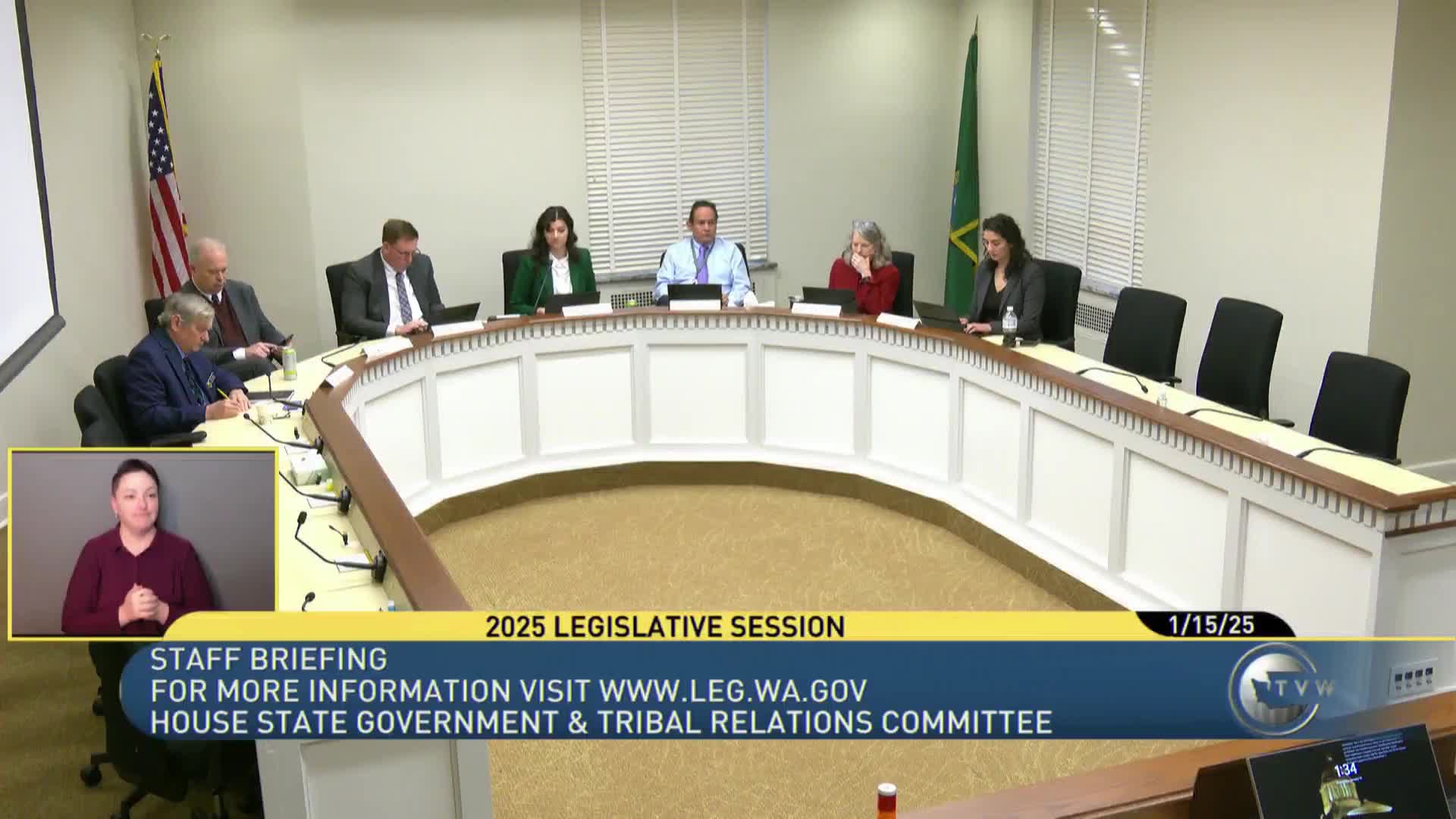Debate over creating a transparency ombuds office surfaces as committee hears House Bill 1055 study proposal
Get AI-powered insights, summaries, and transcripts
Subscribe
Summary
The State Government & Tribal Relations Committee on Jan. 15 took testimony on House Bill 1055, which would create a joint legislative committee and direct JLARC, the attorney general and the Sunshine Committee to study whether Washington should establish an independent transparency ombuds office to assist public‑records requesters.
The State Government & Tribal Relations Committee on Jan. 15 took testimony on House Bill 1055, which would create a Joint Legislative Committee on Transparency and direct the Joint Legislative Audit and Review Committee (JLARC), the attorney general’s office and the Sunshine Committee to study whether an independent Washington Office of Transparency Ombuds should be established to help the public access public records.
Desiree Omley, OPR staff, briefed the committee on the bill’s scope. The study would compare other states’ public‑records laws to Washington’s, evaluate independent agencies in other states, examine whether litigation decreased and whether access increased, and determine potential cost savings and duties for the proposed office. JLARC would be required to submit results to the Legislature by Dec. 1, 2026, and the joint legislative committee and the study would sunset on Dec. 31, 2026. A fiscal note had been requested.
Representative Peter Abarno, who introduced the bill, told the committee the Public Records Act sometimes produces inconsistent outcomes for requesters and agencies and said the current judicial enforcement route — suing in superior court — can be costly and time‑consuming. “When you don’t get what you want, you have really one option: sue in superior court, which drives cost up, lengthens the time of getting what you want,” Abarno said, and described recent studies estimating PRA litigation, attorney fees and penalties around $100 million (as stated in his remarks).
Opposition and caution came from multiple open‑government advocates and local‑government representatives. Roland Thompson, vice chair of the Sunshine Committee, said the Sunshine Committee and JLARC may lack capacity to complete the proposed study on the timeline in the bill and that a statewide focus should include investments in records management and shared digital resources. Robert McClure of the Washington Coalition for Open Government and Ellen Hyatt of the Washington Newspaper Publishers Association said the state’s judicial enforcement model reflects the voters’ intent and that the Pennsylvania model cited by some witnesses should not be treated as a template; McClure cited JLARC data that only a small fraction of public-records requests lead to lawsuits and warned the new office could slow access and add cost.
Panelists from associations that represent cities, counties and other public entities urged caution and revisions. Joe Kudzor (testifying as ‘other’) said the study should look at multiple models and protect payment of attorney fees in records cases. Nana Christensen of the Washington Coalition for Open Government said the coalition would continue working with state officials and local associations to identify capacity and technology needs that affect PRA compliance.
Committee members noted the split in views and asked about JLARC’s capacity; witnesses recommended clarifying study scope, timelines and funding for records‑management improvements. The hearing closed with no committee vote recorded on the bill.
